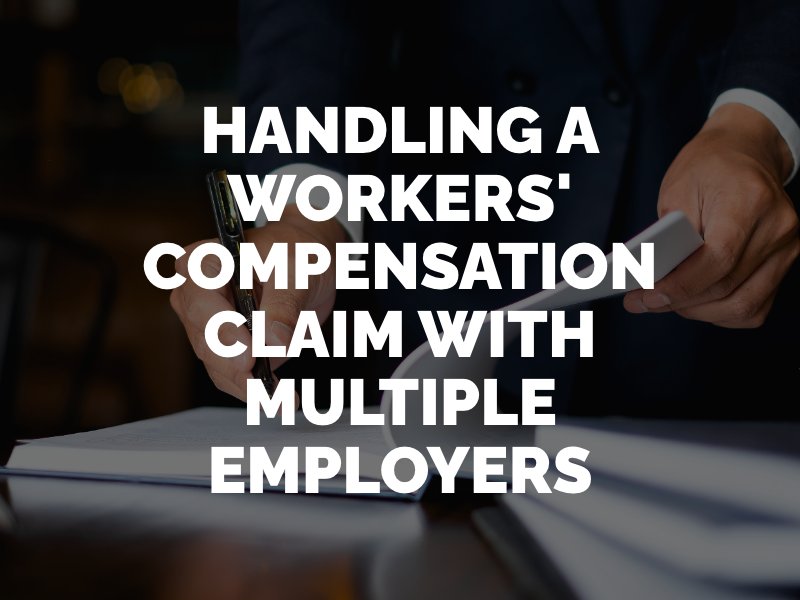Workers’ Compensation When You Have Multiple Jobs
In California, the workers’ compensation system can provide insurance benefits to pay for your medical bills and partial lost wages if you suffer an on-the-job injury. If you have multiple jobs, however, navigating a workers’ comp claim can be complicated. You may need to hire an experienced workers’ compensation attorney in Los Angeles to help you sort out the details of your case.

Which Job Caused Your Injury or Illness?
Your first task is to determine which job caused the injury you are claiming. When you file a workers’ compensation claim, the insurance company will ask for proof that your injury or medical condition is a result of your occupation. This evidence may be simple if you were injured in a singular incident, such as a slip and fall at work. In this scenario, evidence such as eyewitness statements and an accident report may prove your claim.
If you are filing for an injury or illness that developed over time, however, it can be more difficult to determine and prove the cause to an insurer. Repetitive motion injuries such as carpal tunnel syndrome or a herniated disk in your back, for example, could be connected to multiple jobs. In this situation, you will need to identify the specific task or activity that caused your injury or illness.
Your physician can help you understand the mechanics of your injury and its probable causes if you are unsure. Next, you will need to provide proof to the insurer regarding which employer is responsible. Evidence to support your claim may include medical records, doctors’ notes, and statements from your employer or coworkers.
Coordinating Your Benefits
If your injury or illness was caused by both employers or a determination of which employer is liable cannot be confirmed, you may need to file a workers’ compensation claim with each employer you were working for at the time. Each employer’s insurance provider will handle your claim separately.
If you are eligible for workers’ comp benefits from both companies, the benefits will be coordinated to ensure you receive the correct amount. Rather than recovering full benefits from both employers, the insurance carriers will coordinate with each other to provide primary and secondary coverage for a suitable amount.
Will I Receive Lost Wage Benefits for Both Jobs?
If you were injured at one job and your injuries are severe enough that they make it impossible to perform either job, you may be eligible for lost wage recovery for both. The workers’ compensation insurance policy you use will calculate benefits based on the total average weekly wages you earned prior to the injury, with pay from both employers. If one of your jobs classified you as an independent contractor, however, this job will not be factored into your workers’ comp payment.
Can I Continue Working on Workers’ Comp in California?
If your injury or illness does not prevent you from working entirely, you could be eligible for financial benefits in an amount that makes up the difference in pay between how much you were making before your injury and how much you can make now. If you are cleared by your doctor to return to one job before the other, your workers’ comp benefits will be reduced by the amount you start earning from that job.
When to Contact a Workers’ Compensation Lawyer in California
If you have more than one job when your work-related injury or illness occurs, you may need legal advice and assistance from an experienced attorney to get through the workers’ compensation claims process in California.
An attorney can investigate your accident to determine its cause and collect evidence to support your claim. Then, your lawyer can communicate and negotiate with insurance companies on your behalf for fair compensation for the full extent of your losses from both jobs.
At Rose, Klein & Marias LLP, our workers’ compensation attorneys work on a contingency fee basis, meaning we won’t charge you anything for our services unless we win your case. Contact us today for a free consultation to learn more.
